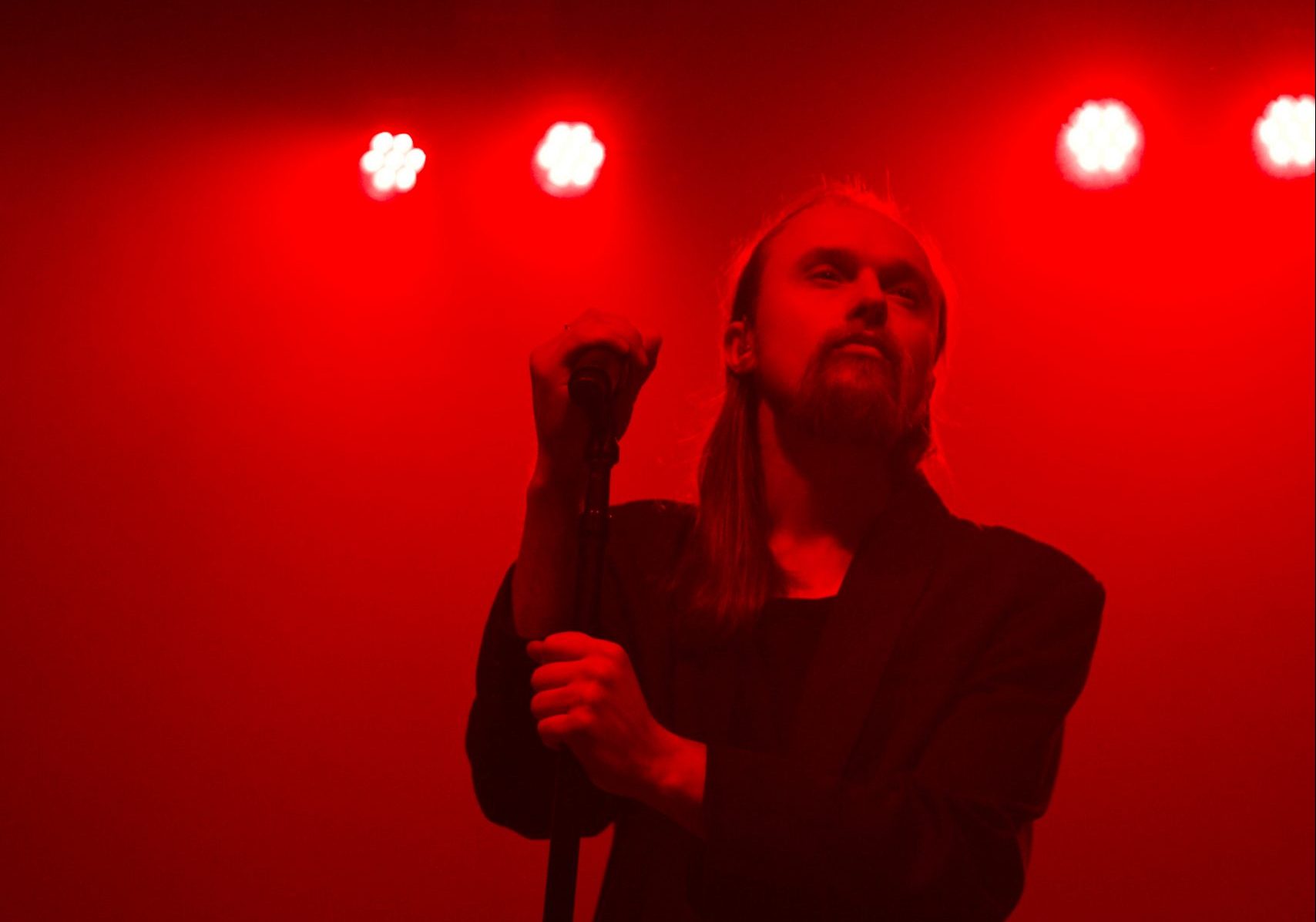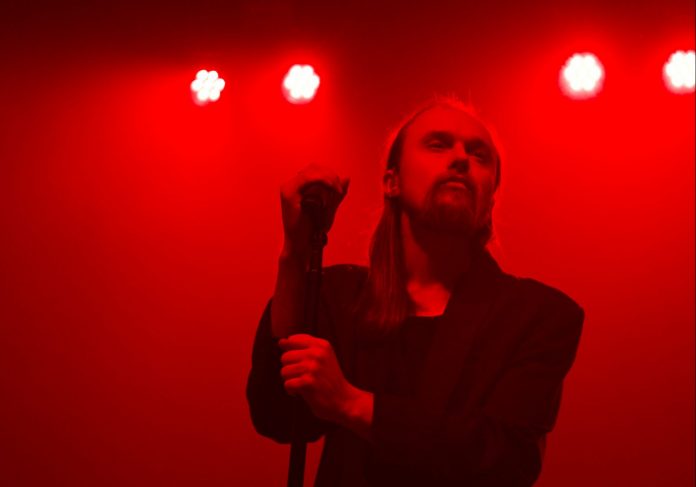Although South Side Ballroom’s entrance policies have become as strict as Six Flags’ (everyone must enter through a metal detector and have their bags searched if they are carrying cameras), the stress and confusion brought about by the venue didn’t matter once Molchat Doma entered the stage.
Molchat Doma, or Молчат Дома (whose name translates to “Houses are Silent” or “It’s Silent at Home”), is a Belarusian cold wave band from Minsk that formed in 2017. Consisting of vocalist Egor Shkutko, guitarist/percussionist/pianist Roman Komogortsev, and bassist/pianist Pavel Kozlov, Molchat Doma’s style is largely influenced by 1980s Russian rock music from the Perestroika era. At an unexpected turn of events, Molchat Doma received critical acclaim from western audiences after the release of their second studio album, Этажи (Etazhi, which means “Floors,” or “Levels”), in 2018. Unfortunately, due to the pandemic, it wasn’t until this year that Molchat Doma was able to go on a worldwide tour for Этажи.
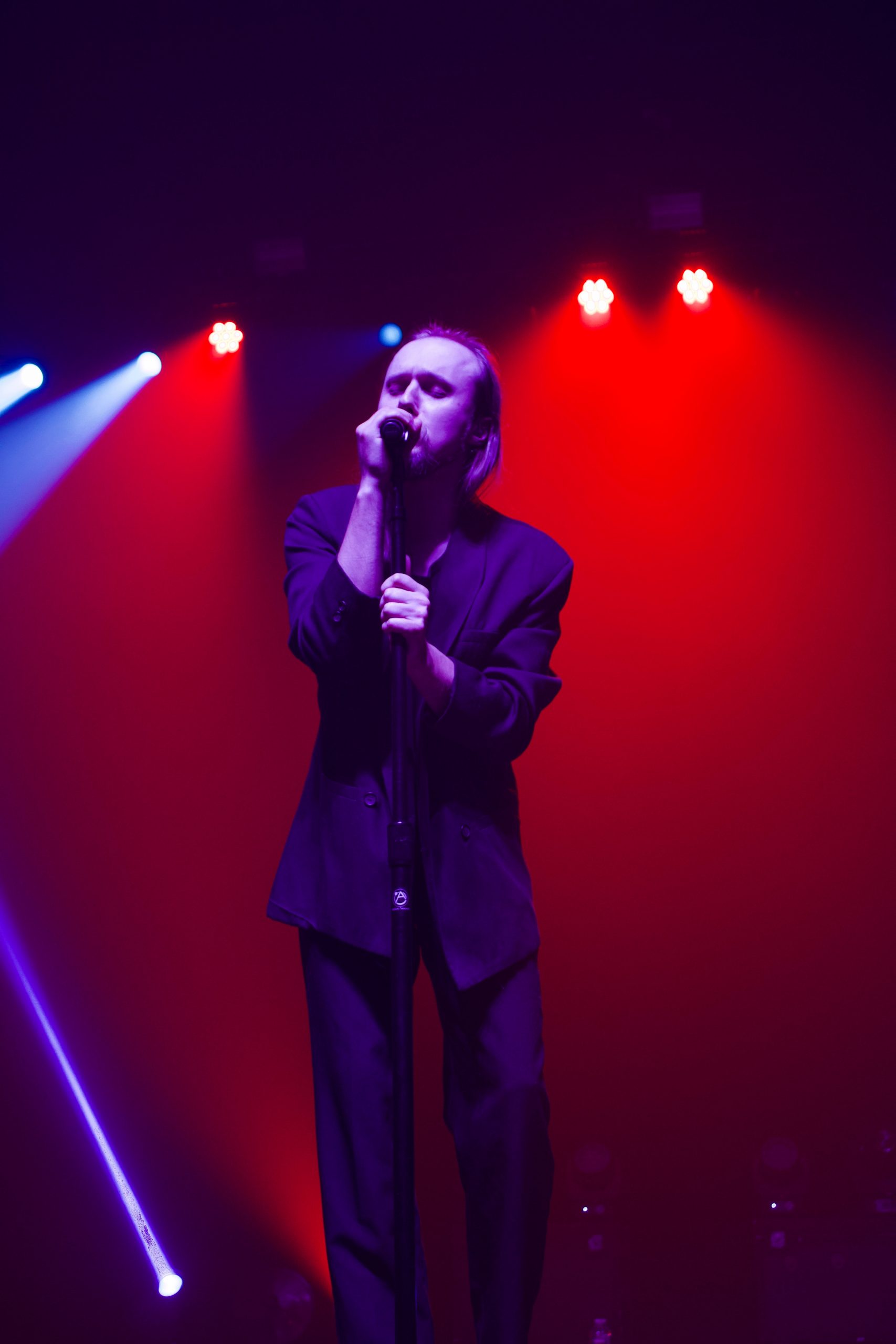
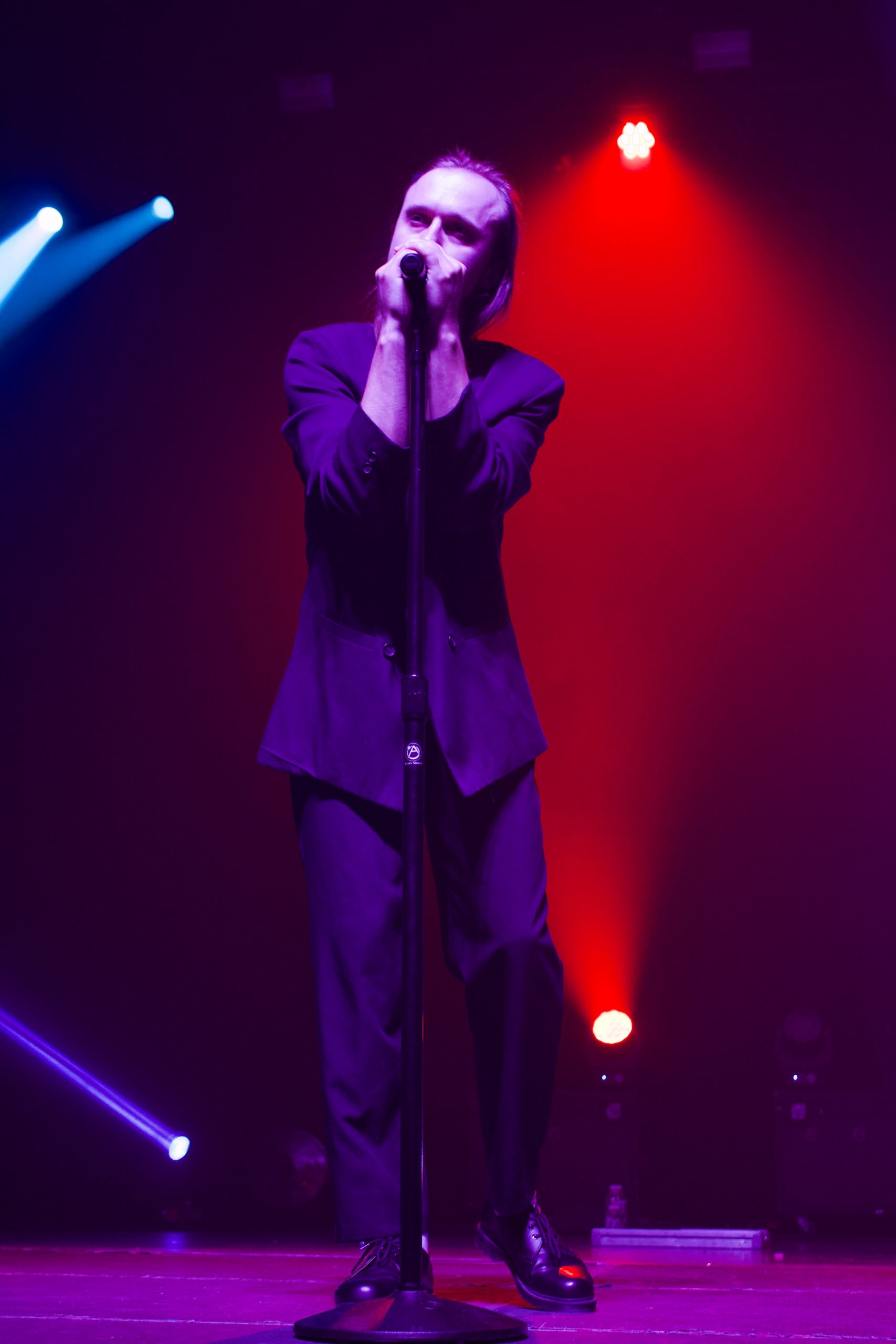
Experiencing Molchat Doma live felt like being in Twin Peaks’ Black Lodge, down to the crimson red lights flooding the entire stage, an overhanging sense of melancholy, and Shkutko dancing in his black suit; it was reminiscent of The Man from Another Place’s wardrobe. Even Kozlov’s bass tone was reminiscent of that in Julee Cruise’s Falling. The entire performance, in its seamless one-hour runtime, was mesmerizing; it was like seeing a dream that I didn’t want to end. Shkutko’s mellow baritone voice was in perfect tune and cadence, Kozlov exhibited a lively stage presence accompanied by a deep, harrowing bass tone, and Komogortsev played each extended guitar and synth introduction effortlessly. For someone who has covered shows on a biweekly basis for six years straight, it is a rare occasion that someone’s performance will emotionally move me. However, after witnessing Molchat Doma live, I had definitely experienced post-show depression afterwards. Without a doubt, this was one of the best performances I had ever seen.
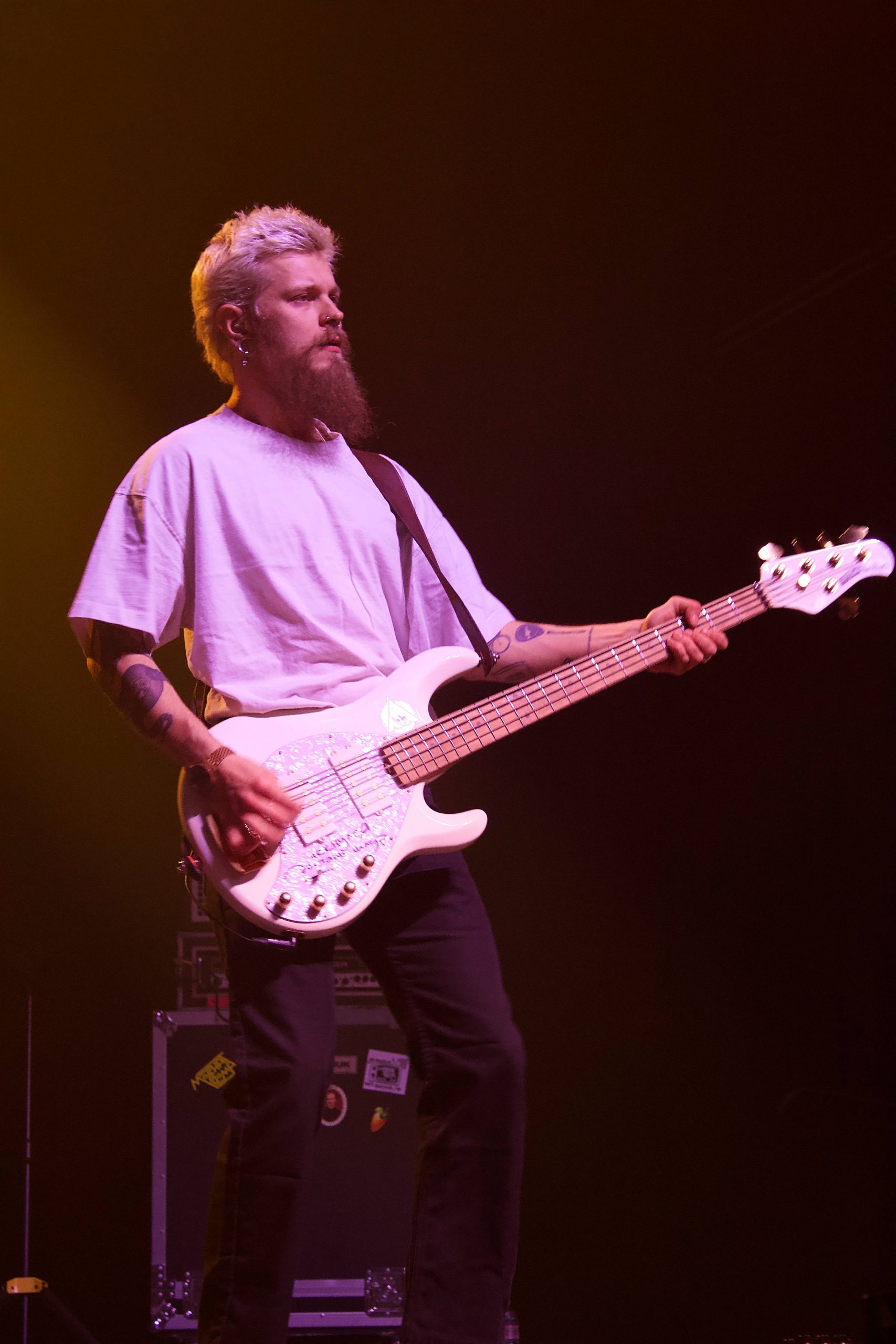

Despite being a sold out show packed with spectators, the environment still felt lonely. As an individual who shares a similar cultural background with Molchat Doma, I was regretfully surprised that there were little to no Russian speakers in the audience. Although the crowd was fully engaged, few sang along with Shkutko due to their lack of fluency in our language. Bearing witness to this was alienating for a multitude of reasons: The subject matter of a majority of Molchat Doma’s songs are elegantly haunting and dark; realizing that a majority of the crowd doesn’t even know what the songs are about was disappointing. In addition, Shkutko would conclude absolutely every song with a humble “спасибо.” This notion struck the crowd with a curious fascination, but it struck me with awe and even more admiration of this band; Shkutko was formally thanking his audience in Russian. Unfortunately, few understood him and the sincerity of that action.
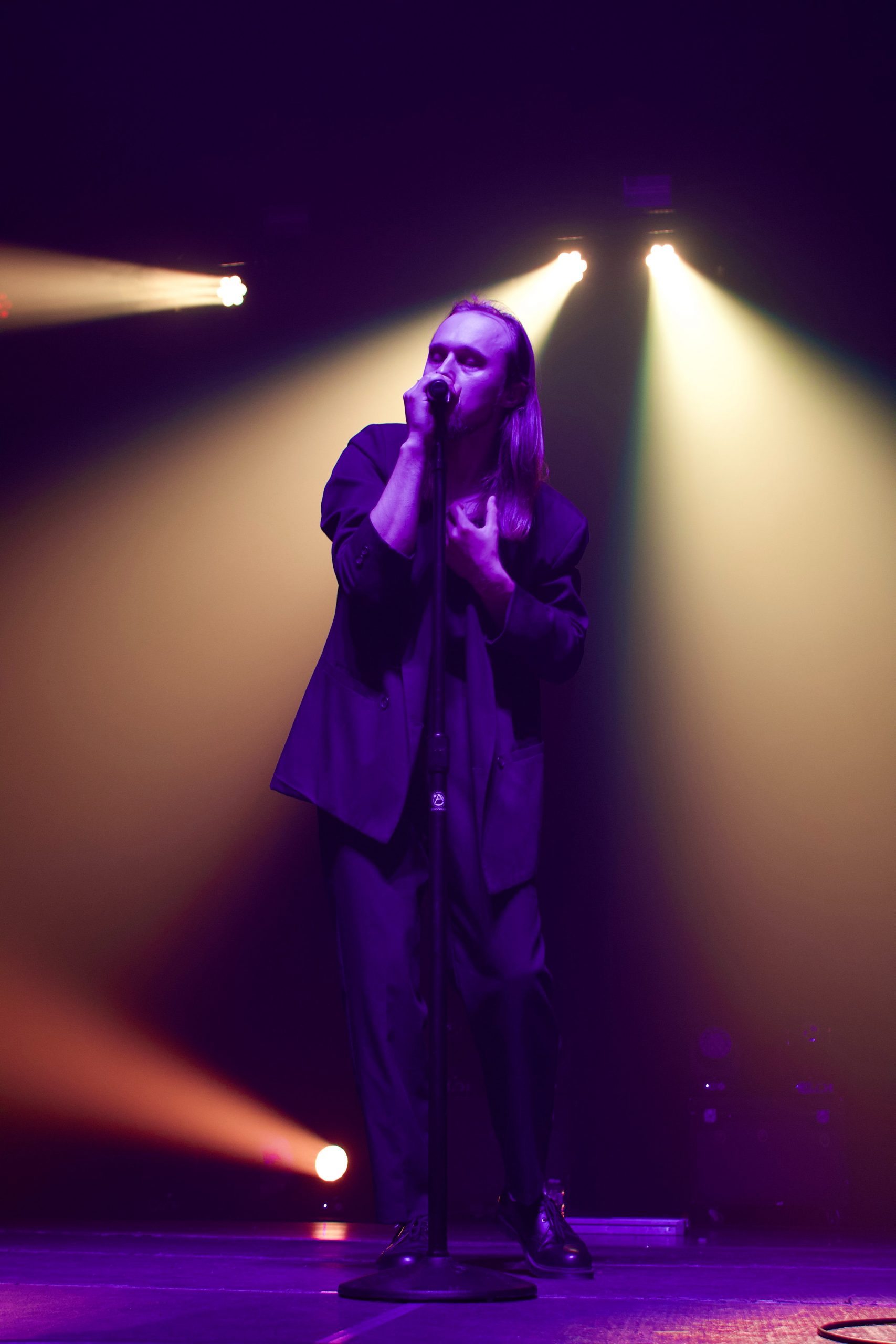

Indeed, while music is a universal language, understanding the artist’s native culture and lyrics enhances the listening experience. I fully expected to be surrounded by at least a sizable crowd of individuals from the former Soviet Union because our people are very supportive of artists from our region, especially those who have achieved widespread success in western countries. Sadly, such was not the case, but at least my family enjoyed the videos I had sent of the show. Even my elders, who are staunchly traditional in the media they consume, appreciate Molchat Doma’s discography due to their similarity to artists from their youth: Kino, Viktor Tsoi, Агата Кристи, and Ария, just to name a few.
